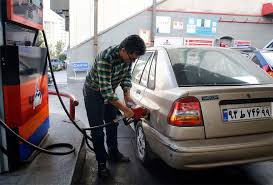MP: Parliament to do its best to prevent goods price hikes

he Iranian Parliament will use its authority and capabilities to prevent hikes in the prices of goods and services in domestic market following the government’s move to reduce the gasoline subsidy, said a lawmaker.
The Iranian government introduced gasoline rationing and price hikes on November 15, with Mohammad Baqer Nobakht, the Plan and Budget Organization head, saying that the revenue would be used to increase the amount of monthly subsidies granted to 18 million low-income families, state television reported.
Iran, which has some of the world’s cheapest fuel prices due to heavy government subsidies on such products, has been fighting rampant fuel smuggling to neighboring countries.
Speaking to Iran Daily in an exclusive interview, Ali-Mohammad Shaeri, a member of the Presiding Board of the Iranian Parliament's Agriculture Committee, added that the support of the Islamic Revolution Leader Ayatollah Seyyed Ali Khamenei for the plan was the final say on the issue, dispelling any doubt about the decision and making it clear for everybody that its implementation is a must.
President Hassan Rouhani’s administration approved and, then, decided to implement the plan in a meeting attended by the heads of the three branches of government, to control fuel consumption, reduce environmental pollution, and help economically vulnerable and low-income people of the society, he said.
All Iranian lawmakers are determined to exercise strict supervision over the implementation of the plan in a way to ensure that it does not put pressure on the people or threaten their livelihoods, he stressed.
Shaeri said this will be done through the Parliament’s regular supervision over prices in the market exercised through the body’s specialized committees, such as the one dealing with economic problems or the one responsible for addressing issues pertaining to planning and budget affairs.
“If related organizations or ministries fail to meet their responsibilities in this field, the Parliament will handle the case, demanding explanation for the failures through the authorities it has, such as impeachment and inquiry as well as issuing warnings and conducting investigations.”
In the beginning, people protested the plan rationally and wisely, but, later on, a number of opportunist agents, backed by hostile media outlets, changed the nature of the protests and turned them into riots. They sought to use the events in their own favor.”
The MP stressed that no doubt, foreign media outlets played a significant role in turning the rallies into violent riots.
“Thus, under such circumstances, the supervisory and security organizations of the country are required to fulfill their responsibilities. Since its victory in 1979, Iran’s Islamic Revolution has always been on the radar of BBC and other hostile media outlets, which, like bandits, have been awaiting opportunities to deal a blow to it.”
This comes as some hostile groups, such as those against the Islamic Revolution, monarchists and members of the terrorist Mujahedin-e Khalq Organization (MKO), are always seeking opportunities to attempt sabotage, he noted, warning that, “Thus, we must not provide them with such opportunities.”
Shaeri said as stressed by Ayatollah Khamenei, the implementation of the gasoline rationing plan, drawn up through expert work and studies, should not lead to an increase in the prices of other goods.
“Therefore, the government must execute the plan carefully by taking all aspects into consideration.”
He said people have the right to voice their complaints, adding however, protest against something and riot are two completely different issues.

